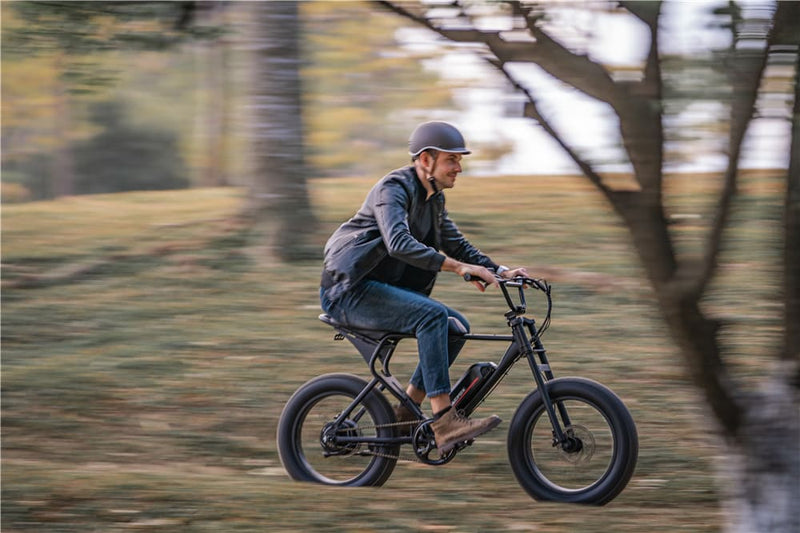In recent times, electric bicycles or e-bikes have skyrocketed in terms of their popularity. This surge is largely attributed to the blend of innovative technological advancements and an ever-growing global consciousness about environmental sustainability. E-bikes have become more than just a trendy transportation mode; they represent a paradigm shift in how people view commuting, leisure travel, and even physical exercise. But as with every mode of transportation, understanding the intricacies of legal mandates, especially in a state as unique as South Carolina, becomes pivotal.
E-bike Classification in South Carolina
The state of South Carolina has a clear-cut definition for electric bicycles. Specifically, an e-bike is seen as a vehicle with two or three wheels, equipped with fully operable pedals. The electric motor powering these bikes must not exceed 750 watts. Additionally, the topmost speed they can attain, when driven solely by the motor on a level ground, must not surpass 20 mph. With these specifications in place, e-bikes are discerned quite distinctly from their counterparts like motorcycles or mopeds, each of which has its own set of guidelines and regulations.
The X1 electric commuter bike launched by Macfox is equipped with 500W (peak 750W)Gear hub motor。

Navigating Licensing and Registration Protocols
One of the standout features of e-bike regulations in South Carolina is the minimalism in bureaucracy. Contrary to what some might expect, there's no obligation for e-bike riders in this state to undergo a rigorous licensing process. Furthermore, the process of registering the e-bike is also non-mandatory. This not only streamlines the adoption process but also positions e-bikes as an attractive alternative for those wishing to bypass traditional vehicular red tape.
Demystifying E-Bike Riding Zones
The freedom to ride e-bikes in South Carolina is fairly extensive, but not without its boundaries. For starters, these bikes can seamlessly glide on any public thoroughfare where you'd typically find conventional bicycles. But, riders should be aware of certain restrictions:
-
Bike Paths and Multi-Use Trails: Local bylaws heavily influence the accessibility of e-bikes on these paths. Prior to setting out on an e-bike journey, it's prudent to cross-check any local ordinances or specific park regulations that could impact the trip.
-
Sidewalk Riding: The charm of South Carolina's sidewalks remains largely undisturbed by e-bikes. The general norm across various municipalities is to discourage or outright ban the use of e-bikes on sidewalks, ensuring pedestrian safety remains uncompromised.
-
Areas Off-Limits: Some regions within South Carolina might have absolute prohibitions on e-bike usage, usually grounded in safety protocols or ecological conservation efforts. Compliance with posted signs and local rules is non-negotiable in these zones.
Related Reading: Exploring South Carolina's Coastal Beauty on an eBike
Championing Safety
While South Carolina's legal framework might not mandate helmet usage for e-bike riders aged 16 and above, personal safety shouldn't be taken lightly. Helmets are the first line of defense against potential head injuries. In tandem with helmets, e-bike enthusiasts should also consider investing in reflective gear, sturdy lights, and bells to enhance visibility and audibility. Apart from equipment, adhering to road etiquette, recognizing traffic signals, and showcasing predictability through hand gestures for turns or halts can significantly mitigate on-road risks.
Shouldering Legal Commitments
E-bike aficionados in South Carolina should never lose sight of the fact that they're bound by the same legal edicts as conventional cyclists. This encompasses unwavering adherence to all traffic regulations, right from respecting speed limits to halting at designated stop signals. Legal complexities can spiral in the aftermath of an accident. Should an e-bike rider be deemed at fault in such a scenario, they might find themselves entangled in liabilities and compensatory obligations. Given these potential legal ramifications, having an insurance shield can be a wise precaution.

Summing Up
Embracing the e-bike culture in South Carolina is synonymous with embarking on eco-friendly journeys that are both exhilarating and efficient. But, to truly relish these rides, one must not only respect the machinery but also the legal tapestry that governs its use. Stay informed, stay safe, and let the e-bike revolution in South Carolina thrive!
FAQs
Q1: What distinguishes an e-bike from other vehicles in South Carolina?
E-bikes are recognized by specific attributes, including having an electric motor under 750 watts and a maximum speed threshold of 20 mph on level terrains.
Q2: Are there places where e-bikes are disallowed in South Carolina?
Yes, e-bikes might be restricted on certain sidewalks, specific trails, and some ecologically sensitive zones. It's advisable to refer to local guidelines.
Q3: Is insurance a requirement for e-bike riders?
While not a strict legal mandate, having insurance can safeguard riders from potential liabilities in accident scenarios.

















